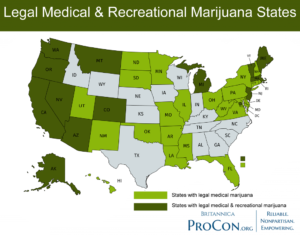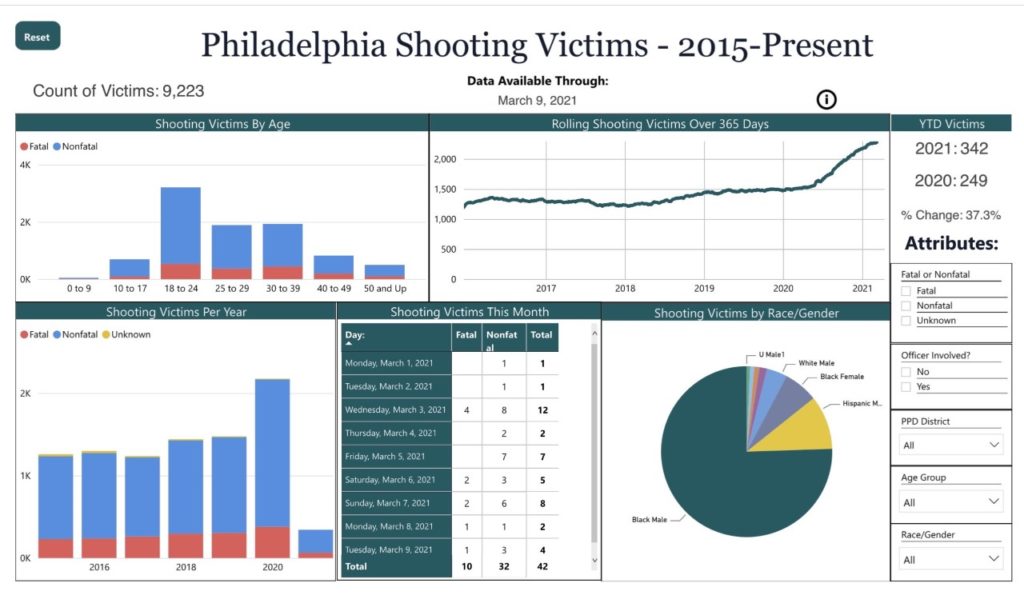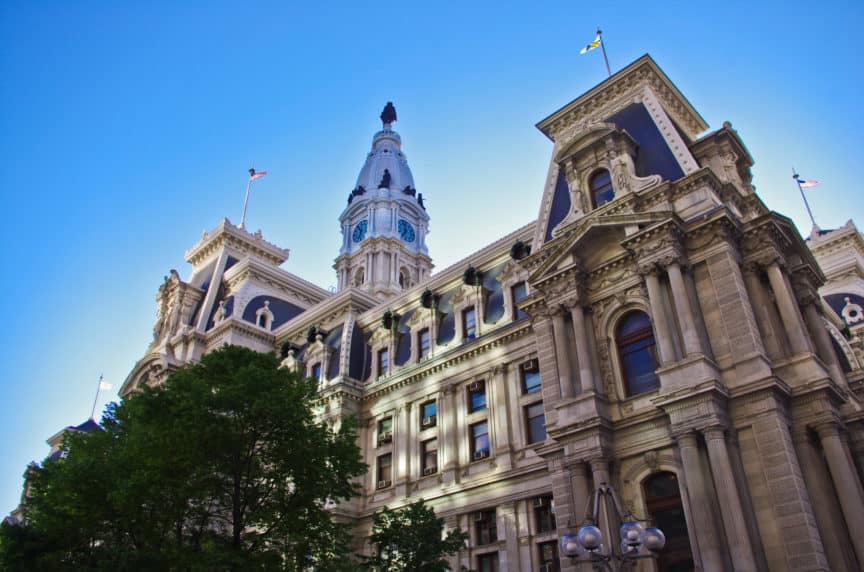COUNCIL CONSIDERING LEGISLATION TO REINSTATE PUBLIC HEALTH EMERGENCY SICK LEAVE
City Council is considering legislation to reinstate two weeks’ worth of paid sick leave coverage to Philadelphia workers. The bill, introduced by Councilmember Kendra Brooks (At Large), applies to businesses that employ over 50 employees and could be used by workers to quarantine due to exposure to COVID-19, care for a sick family member, or stay home with a child whose daycare or school has closed as a result of COVID-19.
As Philadelphia eases restrictions on restaurants, sports venues, retail, and other businesses, paid sick leave protections are a critical strategy in keeping the local economy open while protecting public health. Emergency paid sick leave provides assurance that sick workers are staying home when symptoms arise or exposure to the virus occurs, thus reducing the risk of workers passing on the virus to each other and to the public. Employers who provide emergency paid sick leave to their employees are eligible for a federal tax credit.
The legislation builds off a 2020 Public Health Emergency Leave bill, also introduced by Councilmember Brooks, which was passed in September and provided thousands of essential workers with paid sick leave benefits who were excluded from the Families First Coronavirus Response Act. That bill included a sunset provision which caused the sick leave protections to expire on Dec. 31, 2020, leaving workers without this benefit even as COVID-19 cases surged locally. The legislation debated Thursday in Council extends the benefit for the duration of the declared public health emergency. Due to a technical amendment to the bill concerning its applicability to federal tax credits, a vote on final passage of the legislation will take place next Thursday.
The majority of workers in Philadelphia who have continued to physically report to their jobs through the pandemic are making low and working-class wages. Low-wage workers are less likely to have access to paid sick leave or to be able to afford a missed paycheck. Further, a disproportionate number of essential workers are people of color, contributing to the racial disparity of COVID-19 in Philadelphia, in which Black persons are more than twice as likely as white individuals to contract the virus, according to Department of Public Health data.
“Our workers were left in the cold during the winter months, and they cannot wait any longer for protections,” said Councilmember Brooks. “With schools, stadiums, and other businesses reopening, emergency paid sick leave is a necessity not only for workers, but for the Philadelphia public. Our low-wage workers have been on the frontlines of this pandemic for nearly a year, and the least we can do for them to provide the protections they need to keep themselves, their families, and their communities safe.”
A hearing on the bill featured testimonies from workers across the city, detailing the challenges of in-person work during the pandemic.
“When faced with a choice between losing two weeks of pay or not, what kind of choice could a worker earning poverty wages make when they feel a little sick? What bills should they not pay if they’re told to quarantine because they were exposed to COVID-19 on the job?” said Mike Brown, a bike security officer at Temple University. “Essential workers who protect the public deserve to be protected. Please, keep me and my fellow officers safe by making sure we don’t have to choose between feeding our families or putting others at risk. Make employers provide paid sick leave for all essential workers.”
COUNCIL INTRODUCES LEGISLATION TO FINANCE $400 MILLION PLAN TO INVEST IN AFFORDABLE HOUSING, JOB CREATION AND NEIGHBORHOOD PRESERVATION
City Council on Thursday introduced legislation to finance a $400 million program to fund citywide investments in affordable housing, home repair, job creation, and neighborhood preservation.
The ordinance, introduced by Council Majority Leader Cherelle L. Parker (9th District) at the request of Council President Darrell L. Clarke (5th District), authorizes the city to take the necessary financing steps to sell up to $400 million in tax-exempt municipal bonds – a key next step for the Neighborhood Preservation Initiative.
The Neighborhood Preservation Initiative was approved by Council in December to address disparities magnified by the COVID-19 pandemic, including the need for more affordable housing, repairs to residents’ existing homes, support for first-time homebuyers, small business assistance, neighborhood business corridor revitalization, and the creation of a more inclusive workforce in Philadelphia.
“The COVID-19 pandemic magnified economic and racial disparities that have existed for far too long in Philadelphia,” said Council President Clarke. “There is no time to wait. We need to act now to create a more equitable future for every Philadelphian and all our neighborhoods. The ordinance introduced today authorizes the city to issue up to $400 million in bonds to finance the Neighborhood Preservation Initiative. It’s a critical next step.”
“I share City Council’s desire to drive inclusive and equitable economic growth in our neighborhoods as Philadelphia recovers from the devastating toll of the pandemic,” said Mayor Jim Kenney. “These programs will undoubtedly have a tremendous impact on our communities and residents.”
Revenues from the bonds are expected to catalyze a larger burst of economic activity — $2.5 billion – and produce $71 Million in new tax revenues over the first 4 years of the neighborhood preservation program. It is estimated that it will support over 14,700 jobs with $765 Million in wages.
“We can’t sit by idly and wait for someone to come to our rescue; we must be proactive,” said Council Majority Leader Cherelle Parker. “This preservation program will generate close to a half billion dollars that will impact the lives of our most vulnerable residents and neighborhoods that have been hurt most directly by the coronavirus. It will help those in poverty, prevent those living on the margins from falling further behind, and create sustainable jobs and assist small businesses – which need our help right now.”
COUNCIL PASSES RESOLUTION TO HOLD HEARINGS TO EXAMINE THE RACE GAP IN HOUSING APPRAISALS IN PHILADELPHIA
The resolution, offered by Majority Leader Parker, authorizes the Committee on Housing, Neighborhood Development, and the Homeless to hold hearings examining the race gap in home appraisals and its impact on homeownership and wealth accumulation in Philadelphia.
Parker’s resolution quotes from a recently released Memorandum by President Biden that concerns redressing the nation’s and Federal government’s history of discrimination in housing policies, with deep, adverse impacts on Black, Latino, Asian American and other minority populations.
“Racial bias in the appraisal industry — an industry that is dominated by white people — is an understudied contributor to historical and ongoing segregation and wealth disparities in Philadelphia and across the United States,” the resolution states, noting that real estate appraisers tend to be overwhelmingly white, which can contribute to appraisals that undervalue properties owned by non-white families.
“In order to comprehensively address this problem, City Council must examine the role that race plays in every part of the appraisal process – the racial demographics of the neighborhood, the race of the homeowner, and the race of the appraiser,” Parker’s resolution concludes.
SEEN ON SOCIAL MEDIA…
Everyone 65 & older in Philadelphia is eligible for the COVID-19 vaccine!
In effort to bring Philly in line with our neighbors & with more vaccine supply, the Health Dept. has changed the priority scheme for Phase 1b to include those that are age 65+: https://t.co/gwXlJIGw79 pic.twitter.com/bSDqQWkT4A
— Philadelphia Public Health (@PHLPublicHealth) March 11, 2021
IN OTHER NEWS…
Councilmember Thomas Calls for Hearings to Examine Systemic Biases in Oversight of Black- and White-led Schools. Councilmember Isaiah Thomas (At Large) introduced a resolution calling on Council’s Education Committee to hold a hearing to identify and examine potential systemic biases in oversight, expansion and applications that create inequalities between Black- and white-led schools, resulting in fewer resources, support, and opportunities for growth in Black-founded and -led institutions.
“For over 20 years, Black founded and led schools have succeeded in providing quality, culturally specific educational programs that celebrates student’s heritage and ethnicity,” the resolution states. However, “over the last five years, nine of 14 Philadelphia schools that have closed or agreed to close for not meeting school district conditions were minority-run.”
Four of five schools currently slated by the School District of Philadelphia for non-renewal are minority-run, Thomas’ resolution states, claiming that “Black-led and founded institutions have been held to standards that are inconsistent, causing a lack of transparency in the School District’s process of reviewing, managing, and closing non-district led schools.”
For decades, Black-led schools have added to the vibrancy and uplift of a community which in Philadelphia has often been left literally standing outside the wall. These same schools have also suffered through the process of just existing and being recognized as an important part of the educational landscape here in Philadelphia, the resolution concludes.
 Councilmember Green Introduces Legislation For Ballot Question to Voters, Calling on Legislature and Governor to Legalize Marijuana. Councilmember Derek Green (At-Large) introduced legislation to amend the city’s Home Rule Charter, via a ballot question to be decided by voters this November, calling on the General Assembly and Gov. Tom Wolf to decriminalize, regulate, and tax the sale of marijuana for non-medical uses for adults over 21.
Councilmember Green Introduces Legislation For Ballot Question to Voters, Calling on Legislature and Governor to Legalize Marijuana. Councilmember Derek Green (At-Large) introduced legislation to amend the city’s Home Rule Charter, via a ballot question to be decided by voters this November, calling on the General Assembly and Gov. Tom Wolf to decriminalize, regulate, and tax the sale of marijuana for non-medical uses for adults over 21.
With the recent signing of recreational cannabis legislation in New Jersey and congressional efforts pushing for cannabis reform as part of their legislative agendas this year, 15 states – as well as Washington, D.C. – now allow non-medical marijuana use for adults 21 years and older. There are 36 states, including Pennsylvania, that permit the use of medical marijuana.
As federal vaccination coordination and economic stimulus combine to relieve the COVID-19 pandemic, the time for state officials to revisit and act is now – particularly to allow Black and Brown people who have been disproportionately incarcerated for minor marijuana-related offenses to legally take part in an industry projected to be worth $30 billion by 2025, Green said in a news release.
“This measure is long overdue in Pennsylvania, and quite frankly, all across the country as times evolve and we, as a society, shift further and further away from the perspective of cannabis as taboo and unacceptable,” said Green. “Data continues to prove both the medical and health benefits as well as the economic potential of cannabis with responsible utilization and regulation. It’s time to stop using cannabis law as a weapon against low-income communities and people of color and begin looking at ways to leverage this industry as a catalyst for permanent, equitable, and prosperous change.”
OTHER SIGHTS AND SOUNDS FROM THE COUNCIL WEEK
Committee on the Disabled and Persons With Special Needs 3-5 -2021
Committee on Appropriations 3-8-2021
Committee on Rules 3-9-2021
Stated Meeting of Philadelphia City Council 3-11-2021
PHILADELPHIA FACTS AND FIGURES

Source: Philadelphia Shooting Victims Dashboard, Center for Gun Violence Reporting at Community College of Philadelphia
The next Stated Meeting of City Council is scheduled to take place on Thursday, March 18, 2021 at 10 a.m. The Meeting will be held remotely due to the ongoing pandemic, and will air on Xfinity Ch. 64, Fios Channel 40 and stream at www.PHLCouncil.com/watch.



